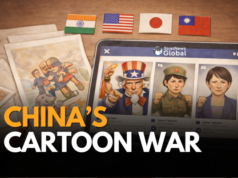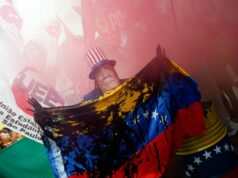The visit of Sri Lanka’s President Anura Kumara Dissanayake to India was a significant step in the evolving relationship between the two countries, believes Ambassador Yash Sinha, one of India’s top diplomats who served as High Commissioner to the UK and Sri Lanka, among other senior roles.
“Though the agreements that were signed were quote anodyne, the joint statement shows continuity over the previous governments,” says Ambassador Sinha, who also headed the sensitive Pakistan-Afghanistan-Iran desk of the Ministry of External Affairs for four years.
“And considering the breaks with the previous governments that the victory of the National People’s Power represents, and the fact that the ongoing projects and programs are being continued, are significant by themselves, what I find the most significant in the joint statement is the reference to concluding a framework on defence cooperation, something that I have not seen mentioned so explicitly in any joint statement,” he said.
“The fact that this is mentioned up front, and that there is likelihood of a framework being concluded is important, and we must take note of that.”
“Of course, the defence cooperation between the India and Sri Lanka are very significant, in terms of training, in terms of equipment over the years, between most of the wings of the armed forces, including the coast guard,” added Ambassador Sinha, who post-retirement went on to become Information Commissioner and then Chief Information Commissioner, a post he held till October 2023.
Responding to continuing assertions by Sri Lankan analysts and politicians that India has blocked access to its market, Ambassador Sinha said that “to some extent, yes, they have a point, but largely, No.
“One of the earliest free trade agreements that India signed was with Sri Lanka, over 24 years ago. And in that sense it was pathbreaking. Since then, trade has expanded considerably, but of course we could potentially do much more,” he explained.
The reason, he said, was that even with the introduction of the South Asian Free Trade Area, or SAFTA, there have been some roadblocks. “ Even when I was high commissioner in Sri Lanka, there were constant complaints about some of their main exports like spices like pepper, tea…”
“Tea of course we are a major producer, largely for our domestic consumption, though we export small quantities. But it is one of Sri Lanka’s main exports. Coming back to spices, they would say we had put up non-tariff barriers to pepper… Valid or not, there was a perception that this was happening,” he said.
However, “it is more than that. It’s not the barriers that are being put up for Sri Lanka exports, because for instance Sri Lanka has made huge investments in India. Brandix, for instance has made huge investments in Visakhapatnam, to set up a garment city, which employs a large number of ladies from the backward areas,” he pointed out.
I think the headwinds were political rather than economic, “ he felt, “like largely unfounded fears that we will be swamped with Indian products, and that Indian doctors and whoever else will come in,” he said.
“But we must appreciate that being a smaller country, Sri Lanka does have these fears, something that’s common in any part of the world you see. This is not uncommon. So we have to address these very carefully.”
It is important to stress that it is a win-win situation for both nations, he said, because “India is one of the fastest growing large economies in the world. And at a time of a global economic slowdown, India is a bright spot, “ he felt.
And “we would like to share our progress, our growth, with our neighbours.”
Sri Lanka is our closest and dearest neighbour, (of course all our neighbours are close and dear)..but sometimes we forget that,” he said.
But what led to the decimation of the traditional parties by the Dissanayake-led NPP in the last presidential and parliamentary elections in Sri Lanka?
And has the JVP, President Dissanakaye’s party, and the largest one in the NPP coalition that he leads, really shed its anti-India position?
Once the euphoria of this massive mandate wears off, will Dissanayake be able to balance the IMF’s stringent conditions for its bailout package with the growing hopes of Sri Lankans upset over rising prices for goods and services?
And why did The Economist ignore the fact that despite all its economic and political troubles Sri Lanka held firm to democratic traditions, and decide to name Bangladesh as its country of the year, and Syria as the runner up?
And is India right in adopting the ‘wait and watch” policy with Bangladesh?
Watch the full interview to get answers to those questions, as well as insights from a veteran diplomat with deep insights into the issues at play in both nations, juxtaposed with a world in flux.
In a career spanning three decades and counting, Ramananda (Ram to his friends) has been the foreign editor of The Telegraph, Outlook Magazine and the New Indian Express. He helped set up rediff.com’s editorial operations in San Jose and New York, helmed sify.com, and was the founder editor of India.com.
His work has featured in national and international publications like the Al Jazeera Centre for Studies, Global Times and Ashahi Shimbun. But his one constant over all these years, he says, has been the attempt to understand rising India’s place in the world.
He can rustle up a mean salad, his oil-less pepper chicken is to die for, and all it takes is some beer and rhythm and blues to rock his soul.
Talk to him about foreign and strategic affairs, media, South Asia, China, and of course India.




